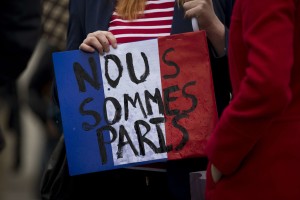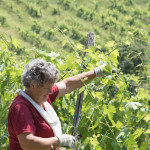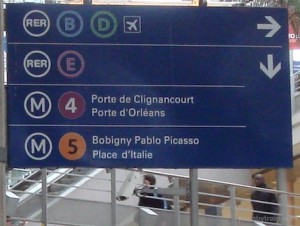When I was five years old, my parents moved to Australia. As children started first grade at the age of five there, I was thrown right into the deep end. No kindergarten, no cultural orientation class...boom, I was in school. Of course, I had two things working in my favor: 1) I spoke English, albeit a very different accent from my peers, and 2) all of us children were new to this thing called school. It was basically a level playing field as each one sought his or her place, circle of friends, and understanding of the system. Of course, I had one thing working against me: I was a foreigner, even though I spoke the same language. Perhaps surprisingly, I have very few memories of being ostracized or feeling left out. The younger the child, the more adaptable he is.
Then, after almost four years, we returned to the U.S. Once again I was the new kid, this time being more used to the Australian school system, accent and culture than my new American surroundings. But perhaps because this was my parents' home culture -- even home state (Texas) -- I somehow felt that this was home, even though it took some getting used to. But get used to it I did -- so much so that, when it came time to move back to Australia two and a half years later, I was distraught. I had grown quite comfortable in America, thank you, and had no desire to uproot once again and head back down under. This second time in Australia, in a new city, a new school, I most definitely felt like the outsider I was. I remember looking for my younger brother at lunch every day to commiserate. It was a daily pity party. It took several months for me to gradually acclimate myself, and frankly I'm not sure my brother ever did.
My wife and I spent Labor Day weekend in Boston this year, celebrating the marriage of my nephew and catching up with family we don't see nearly often enough. We also spent one serendipitous afternoon with two of my wife's girlfriends from middle school days. (My wife's family had moved to a town south of Boston from her native Jackson, Mississippi for three and a half years.) She had reconnected with these two friends on Facebook, but had not seen them in...wait for it...forty-six years! As I sat and watched and listened to the reunion of these three childhood friends, each now with a lifetime of experiences behind her, I found myself with an overwhelming sense of gratitude.
As I imagined Becky, the eleven-year-old Mississippi belle with a lilting accent moving to crusty Massachusetts, where she most certainly was the outsider in the neighborhood and school, my own memories of the back-and-forths to and from Australia came flooding back. I could imagine all too well how she might have been ridiculed for her accent alone, much less her southern ways and mannerisms. And yet, before me were two women who had not only reached out to her as a newcomer, but formed a tri-fold bond that carried them through up to the high school years, when my wife returned with her family to Mississippi. It was so gratifying (and entertaining) to listen to them reminisce; one would remember something neither of the other two did, and there was more than a little laughter. After sitting together, walking through Boston's North End, then eating decadent cannoli together, Becky and I said a reluctant goodbye to two old/new friends who had left a permanent impression -- on both of us.
If an eleven-year-old boy or girl can feel like an outsider in a culture where his or her language is spoken, imagine what it is like for the thousands of Syrian, Iraqi and Afghani refugees pouring into Europe as I write this. No, there are no simple solutions to this crisis.
You may never have the opportunity to reach out to a Syrian refugee (but then again, you may). But might there be some outsider waiting for someone such as you?
Whether on the personal or the global scale, somehow, may a heart for the outsider win the day.



























